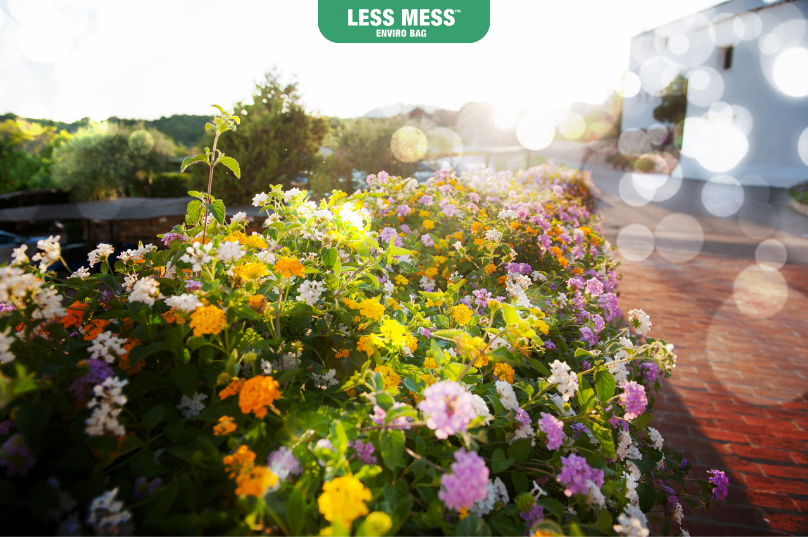Summer in Boston brings warmer temperatures and longer days, creating an ideal environment for gardening enthusiasts to nurture their plants and enjoy the beauty of nature. However, the intense heat and occasional drought can pose challenges to successful gardening. In this Less Mess blog post, we will explore essential tips and strategies for summer gardening in Boston, helping you maintain a vibrant and flourishing garden throughout the season.

- Watering Wisely: Watering is crucial during the hot summer months, as plants can quickly become dehydrated. Follow these watering tips for an efficient and thriving garden:
- Deep Watering: Water your plants deeply and less frequently to encourage deep root growth. This helps plants withstand drought conditions. Aim for at least an inch of water per week, focusing on the root zone rather than the leaves.
- Morning Watering: Water your plants in the early morning to minimize evaporation and allow foliage to dry before nightfall. Avoid watering during the hottest part of the day, as it can scorch leaves.
- Mulching: Apply a layer of mulch around your plants to conserve moisture, reduce weed growth, and maintain cooler soil temperatures. Mulch acts as a protective barrier, preventing water loss through evaporation.
- Heat-Tolerant Plant Selection: Choose plant varieties that are well-suited to Boston 's summer climate. Opt for heat-tolerant and drought-resistant plants such as:
- Perennials: Coneflowers, Black-eyed Susans, Lavender, and Sedums are excellent choices. They can withstand hot temperatures and require less water once established.
- Annuals: Zinnias, Marigolds, Petunias, and Vinca thrive in the heat and provide vibrant colors throughout the summer.
- Vegetables and Herbs: Tomatoes, peppers, eggplants, basil, rosemary, and thyme are among the vegetables and herbs that perform well in Boston 's summer conditions.
- Proper Soil Care: Healthy soil is the foundation of a successful garden. Consider these soil care tips to ensure optimal growing conditions:
- Organic Matter: Improve soil structure and water retention by adding compost. Organic matter enhances the soil's ability to hold moisture, reduces the frequency of watering, and provides essential nutrients to plants.
- Mulching: As mentioned earlier, mulch is beneficial not only for water conservation but also for maintaining soil temperature. It prevents the soil from overheating and keeps the roots protected.
- Shade and Protection: Boston 's summer sun can be intense, potentially causing sunburn or heat stress in some plants. Here's how you can provide shade and protection:
- Use Shade Cloth: Install shade cloth or temporary covers to protect sensitive plants from excessive heat and direct sunlight. This helps to reduce temperature fluctuations and maintain healthier plants.
- Grouping Plants: Cluster heat-sensitive plants together to create shade for each other. This technique can help maintain cooler microclimates within your garden.
- Regular Maintenance: Regular Garden maintenance is crucial during the summer months. Consider the following tasks:
- Pruning and Deadheading: Remove spent flowers and prune excessive growth to encourage new blooms and maintain a tidy appearance. Pruning also improves airflow, reducing the risk of fungal diseases.
- Pest Control: Monitor your plants for pests such as aphids, spider mites, and whiteflies. Use organic pest control methods when possible, such as handpicking or introducing beneficial insects.
- Weeding: Regularly remove weeds to reduce competition for water and nutrients. Weeds can quickly deplete soil moisture, impacting the health of your plants.
Follow these tips and you’re all set to start gardening this summer! Less Mess brings you a range of quality garden products and delivers right to your doorstep in a big green bag. Order your Less Mess Bag today!




